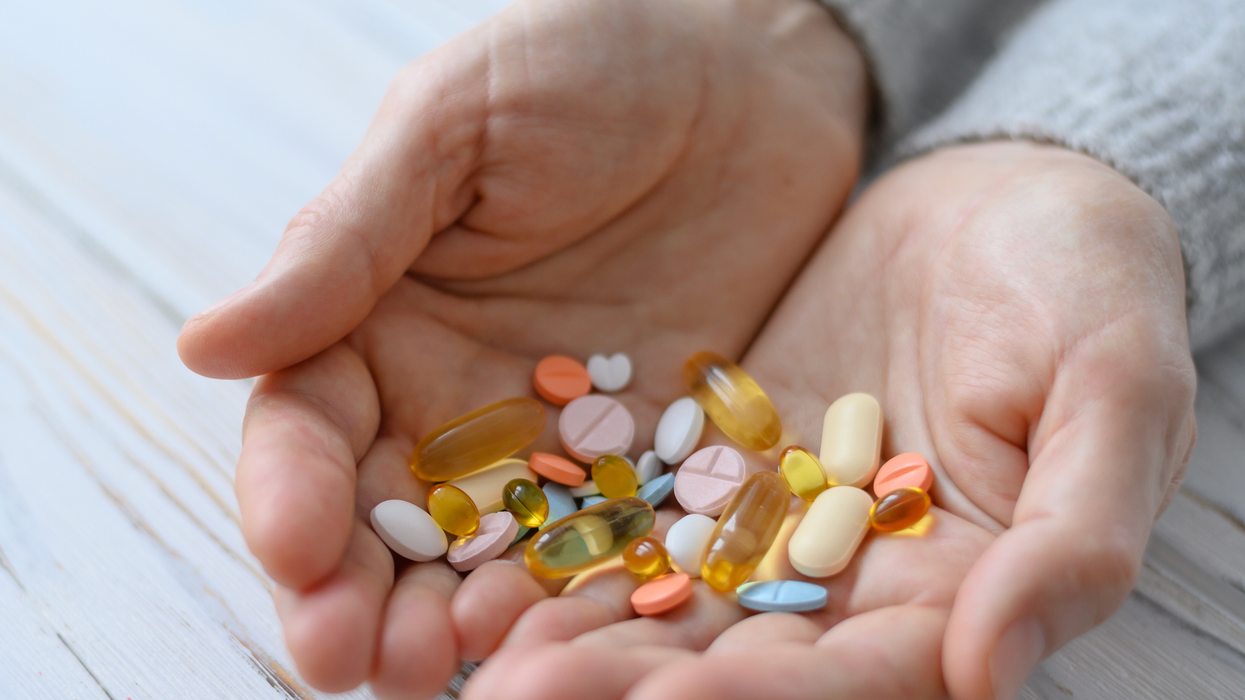Six popular vitamin supplements that contain hidden health risks, from cancer to death

Vitamin supplements have been linked to everything from cancer to abdominal pain when taken in excess
|Getty Images

Supplementation is a poor substitute for a healthy, balanced diet - and may do more harm than good
Don't Miss
Most Read
Latest
Supplementing your way to a good bill of health is an attractive proposition.
Modern life can be hectic and popping a pill is a convenient solution.
However, rewards in life rarely come easy and shortcuts can be risky.
Vitamin supplements are backed by flimsy evidence at best and they carry the risk of overdosing.
Here's six vitamin supplements that contain hidden health risks.
Vitamin A
Vitamin A is a fat-soluble vitamin most known for maintaining eye health.
It is available in two forms: active preformed vitamin A (retinoids)- commonly found in animal products - and provitamin A (carotenoids, found in colourful fruits and vegetables. Our liver stores vitamin A, which helps in preventing hypervitaminosis (abnormally high levels of vitamins).
Research shows that excessive vitamin A consumption can cause acute and chronic adverse effects, such as headaches, muscle and joint pain, liver dysfunction, decreased bone health, and skin changes.
Acute toxicity from vitamin A - called hypervitaminosis A - has been documented in arctic explorers who have consumed large amounts of liver from animals, and can cause rash, abdominal pain, vomiting and increased intracranial pressure, although these cases are very rare.
Furthermore, vitamin A is also known to be teratogenic - causing malformations of an unborn fetus - which is why women planning pregnancies should avoid using retinoid-containing treatments like tretinoins.
How much is safe take?
Some research suggests that having more than an average of 1.5 mg (1,500 µg) a day of vitamin A over many years may affect your bones, making them more likely to fracture when you're older.
If you take supplements containing vitamin A, make sure your daily intake from food and supplements does not exceed 1.5 mg (1,500 µg), advises the NHS.
Vitamin D
Vitamin D is another fat-soluble vitamin that can land you in the danger zone.
The "sunshine vitamin" is a major regulator of calcium balance and critical for healthy bone development.
Many individuals turn to supplemental vitamin D to meet their needs during the winter months but this can lead to "chronic overconsumption", warns Mr Taylor.
Symptoms include fatigue, nausea, diarrhea, and hypercalcaemia (when calcium blood levels are too high).
According to research, this can lead to weakened bones, kidney stones, and impaired heart and brain function.
A separate study shows that taking over 10,000 IU (approximately 250 micrograms) of Vitamin D per day may potentially contribute to hypercalcaemia, which can result in kidney stones and abdominal pain.
The paper found that if this is combined with taking an exceptionally high dose of calcium, it could increase the risk of developing colon polyps (growths on the lining of the colon that can become cancerous) or suffering a stroke.
In extreme cases, vitamin D toxicity causes renal failure, calcification of soft tissues throughout the body (including in coronary vessels and heart valves), cardiac arrhythmias, and even death, studies suggest.
How much is safe to take?
If you choose to take vitamin D supplements, 10 micrograms a day will be enough for most people, says the NHS.
Do not take more than 100 micrograms (4,000 IU) of vitamin D a day as it could be harmful.
This applies to adults, including pregnant and breastfeeding women and the elderly, and children aged 11 to 17 years.
Vitamin E
Vitamin E helps maintain healthy skin and eyes, and strengthen the body's natural defence against illness and infection (the immune system).
However, taking too much can be harmful.
Excessive vitamin E intake has been shown to cause blood thinning and lead to fatal bleeding.
It can likewise interfere with blood clotting, which is your body’s natural defense against excessive bleeding after an injury.
What's more, vitamin E supplementation has been linked to cancer. One trial demonstrated that taking vitamin E might potentially increase the risk of prostate cancer in some men.
How much is safe to take?
Taking 540mg (800 IU) or less a day of vitamin E supplements is unlikely to cause any harm, according to the Department of Health and Social Care (DHSC).
Vitamin K
Vitamin K is a group of vitamins that the body needs for blood clotting, helping wounds to heal.
It comes in two forms: vitamin K1, found in green leafy plants, and vitamin K2, found in fermented foods like natto and cheese.
Vitamin K toxicity is not a significant concern for the general population, who are consuming a balanced diet or taking standard supplements.
"This is mainly due to the body's rapid use of vitamin K and short half-life," explained Mr Taylor.
However, that does not eliminate the possibility of toxicity, especially in certain conditions.
For individuals on anticoagulant medications (blood thinners), such as warfarin, excessive vitamin K intake can counteract the medication's effects, leading to an increased risk of blood clots, warns the Office of Dietary Supplements (ODS).
Patients on these medications must maintain consistent vitamin K intake to avoid fluctuations in medication effectiveness, research suggests.
How much is safe to take? Taking 1mg or less of vitamin K supplements a day is unlikely to cause any harm, says the DHSC.
Vitamin B6
Vitamin B6 (Pyridoxine), also known as pyridoxine, is a water-soluble vitamin that plays an essential role in a wide range of physiological functions, such as storing energy from protein.
Despite its importance, there's a threshold to how much vitamin B6 the body can tolerate before adverse effects kick in.
Exceeding this threshold can lead to toxicity, known as pyridoxine-induced neuropathy, leading to damage of sensory neurons resulting in numbness, pain or burning sensations in the hands and feet, and difficulty walking, multiple studies show.
Vitamin B6 toxicity typically results from the prolonged intake of high doses of supplements well above the recommended daily intake, as it is rare to achieve such high levels through diet alone.
How much is safe to take?
Do not take more than 10mg of vitamin B6 a day in supplements unless advised to by a doctor, advises the DHSC.
Vitamin C
Vitamin C, also known as ascorbic acid, has several important functions.
These include:
- Helping to protect cells and keeping them healthy
- Maintaining healthy skin, blood vessels, bones and cartilage
- Helping with wound healing
However, consuming it in extremely high doses can still lead to adverse health effects.
Some of these negative health outcomes include gastrointestinal distress and the formation of kidney stones by increasing the amount of oxalates in the urine, research shows.
Oversupplementing with vitamin C can also lead to gastrointestinal disturbances like diarrhoea and may impair the body’s ability to increase high-density lipoprotein (HDL) cholesterol in people taking the combination drug niacin-simvastatin, warns the Office of Dietary Supplements (ODS).
This drug combines the vitamin niacin with the statin simvastatin (Zocor), and people take it to treat high cholesterol.
How much is safe to take?
Taking less than 1,000mg of vitamin C supplements a day is unlikely to cause any harm, says the DHSC.










